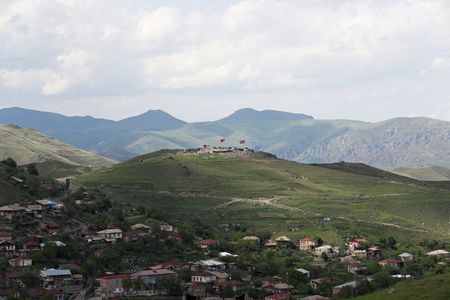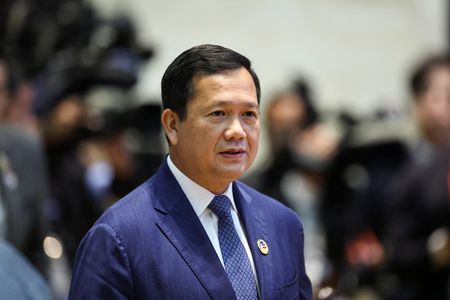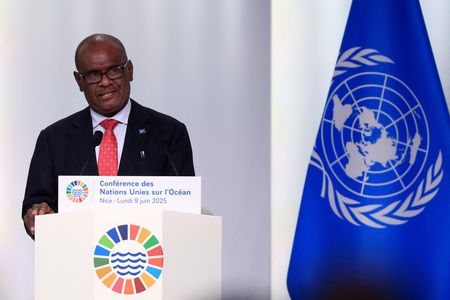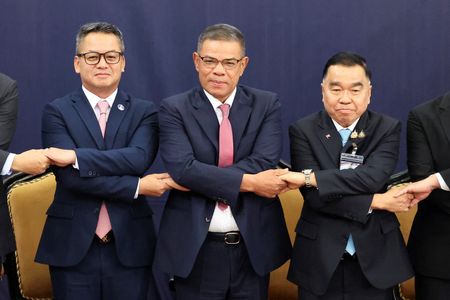By Steve Holland
WASHINGTON (Reuters) -When U.S. President Donald Trump welcomes the leaders of Armenia and Azerbaijan to the White House on Friday, the meeting will culminate in the signing of a peace framework that includes exclusive U.S. development rights to a strategic transit corridor through the South Caucasus, officials told Reuters.
Armenia and Azerbaijan have been at odds since the late 1980s when Nagorno-Karabakh – an Azerbaijani region that had a mostly ethnic-Armenian population – broke away from Azerbaijan with support from Armenia. Both Armenia and Azerbaijan won independence from the Soviet Union in 1991.
A peace deal could transform the South Caucasus, an energy-producing region neighboring Russia, Europe, Turkey and Iran that is criss-crossed by oil and gas pipelines but riven by closed borders and longstanding ethnic conflicts.
Azerbaijani President Ilham Aliyev and Armenian Prime Minister Nikol Pashinyan are to join Trump at the White House for talks and the signing ceremony, the U.S. officials said, speaking on condition of anonymity.
They are to sign a framework aimed at reaching a “concrete pathway to peace” and addressing a long-simmering transit issue, the officials said.
Azerbaijan has asked for a transport corridor through Armenia, linking the bulk of its territory to Nakhchivan, an Azerbaijani enclave that borders Baku’s ally Turkey.
Under a carefully negotiated section of the documents the leaders will sign on Friday, Armenia plans to award the United States exclusive special development rights for an extended period on a transit corridor that will be named the Trump Route for International Peace and Prosperity, and known by the acronym TRIPP, the officials said.
The route will be operated according to Armenian law and the United States will sublease the land to a consortium for infrastructure and management, the officials said.
“Through commercial means, this step will unlock the region and avert further hostilities,” one of the officials said.
The Armenian and Azerbaijani leaders will also sign documents requesting the dissolution of the Minsk Group, which has been co-chaired by France, Russia and the United States since its establishment in 1992 to mediate the conflict, the officials said.
Progress on the Armenian-Azerbaijan issue began in March when U.S. special envoy Steve Witkoff visited the region. Members of his team made several subsequent trips there to help broker the agreement.
U.S. officials believe a peace deal between Armenia and Azerbaijan could prompt negotiations on the entry of Azerbaijan into the Abraham Accords, the series of normalization agreements that Trump brokered between Israel and four Muslim-majority countries in his first term.
The White House summit comes as Trump has tried to present himself as a global peacemaker in the first months of his second term. The White House has credited him with brokering a ceasefire between Cambodia and Thailand and sealing peace deals between Rwanda and the Democratic Republic of Congo, and Pakistan and India.
Trump has been less successful in ending Russia’s war in Ukraine and the conflict between Israel and Hamas in Gaza.
The summit will take place on the same day that Trump set as a deadline for Russian President Vladimir Putin to agree to steps to halt his invasion of Ukraine or face further economic sanctions.
(Reporting by Steve Holland, editing by Ross Colvin and Lincoln Feast)










